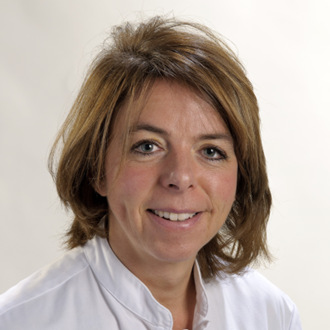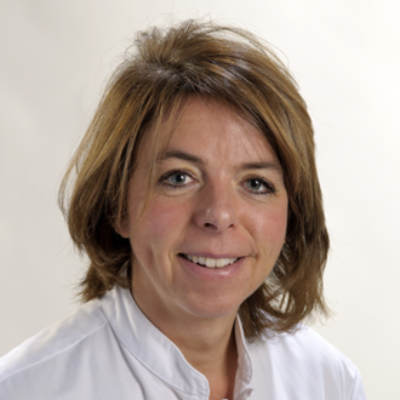



A Q&A with Dr Hanneke Wilmink
Dr Hanneke Wilmink, a medical oncologist from Amsterdam, spoke with us about the exciting progress being made to treatment and care across the pancreatic surgery centres in The Netherlands.
Dr Hanneke Wilmink is a medical oncologist from Amsterdam and a member of the Dutch Pancreas Cancer Group which has done outstanding work in its approach to treatment and care across the pancreatic surgery centres in The Netherlands.
Dr Wilmink is also joining us at the Annual Summit 2019: Accelerating Success to share with the pancreatic cancer community in the UK the challenges the group overcame.
As an introduction to Dr Wilmink, and the exciting progress being made in The Netherlands, we asked her a few questions.
You have a leadership role in a great number of clinical trials in The Netherlands. Can you tell us what is meant by ‘Trials by collaboration’, the title of your presentation?
To me, this means to truly work together developing the protocol which involves numerous meetings to discuss details, and reach consensus. It may take an extra 6 months to talk to everybody but it will pay itself back with faster inclusion in the trial.
The Dutch Pancreatic Cancer Group (DPCG), a national multidisciplinary working group, is an incredible achievement. What challenges did you have to overcome?
Firstly, getting everybody involved but thereafter, maintaining buy-in from all stakeholders across all centers and all medical specialties. This requires good structure to discuss plans but also good “political insight” and a feeling that everybody should benefit equally from the group and not just a few. The latter is the main challenge.
Are there any plans to extend access to, and participation in, clinical trials set in The Netherlands to other countries?
Yes, the DPCG is open to discussions around international collaboration. For instance, it is collaborating with Southampton University to lead the pan-European DIPLOMA trial on minimally invasive vs open distal pancreatectomy for pancreatic ductal adenocarcinoma (PDAC) in 44 centers in Europe (including Moscow) and USA.
Quality of life and supportive care is a highly unmet need for people with pancreatic cancer. How does the DPCG address this and what, in your view, can health professionals be doing to ensure a better quality of life for pancreatic cancer patients?
In the Netherlands, the Dutch Pancreatic Cancer Project (PACAP) is established in 2013. This is a nationwide cohort of patients with pancreatic carcinoma of whom clinical data and patient reported outcomes (PROMs) are collected. Each patient completes a questionnaire every 3 months. At the moment we have collected data from over 900 patients. The first analyses are ongoing on quality of life in pancreatic cancer as prediction for survival.
The European Pancreatic Cancer Index rated The Netherlands number one ‘best overall care’. The rest of Europe are looking to The Netherlands for inspiration and learning. Where do the Netherlands look to?
We look to the UK and US for collaboration and new developments. Most of the new developments which are relevant for our patients will come from these countries. For instance the development of new systemic treatment strategies (phase I clinical trials).
In summary, what do you feel is key to accelerating success for pancreatic cancer patients?
Collaboration and smart trial designs so we can address the problem of the heterogeneity of the disease.

